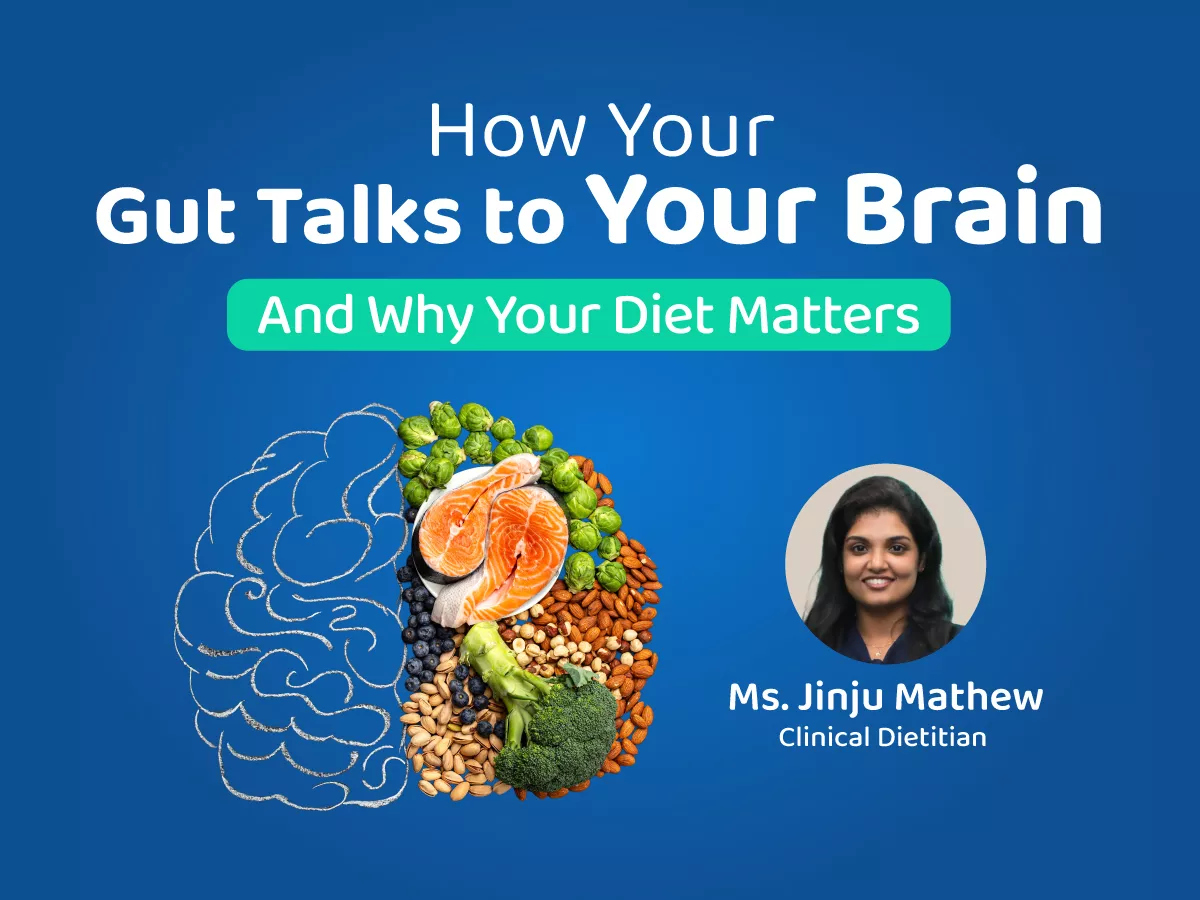In India, the National Mental Health Survey (NMHS) 2015-16 revealed that nearly 15% of adults require active intervention for mental health issues, with 5.3% experiencing depressive disorders at some point in their lives.
The gut does more than just digest food - it plays a key role in mental health and cognition. Emerging research shows a clear link between gut health and the brain via what's now called the "gut-brain axis." The makeup of bacteria and other microbes in the intestines influences inflammation, mood, stress response, and even brain fog. While genetics plays a role, one of the biggest determinants of gut health is the diet. The right foods can cultivate "good" microbes, tamp down inflammation, and keep communications flowing along the gut-brain highway.
Several mood disorders, such as anxiety, depression, and autism spectrum disorders now have well-established links to functional GI disruptions, whereas GI disease (eg, irritable bowel syndrome, irritable bowel disease) often involve psychological comorbidities associated with alteration of the gut microbiome. In addition, research has demonstrated that the composition of gut bacteria appears to be influential in fetal and neonatal neurologic development. And, not surprising, diet has also been shown to influence the gut microbiome’s impact on cognitive function.
Cultivating Good Gut Microbes
The trillions of bacteria and other microorganisms dwelling in the digestive tract are collectively called the gut microbiome or microbiota. A balanced microbiome populated primarily by beneficial bacteria like Lactobacillus and Bifidobacterium plays a major role in health, including mental health.
Consuming plenty of high fiber foods, fermented foods, and selected probiotics helps nourish good gut flora. A fiber-rich diet provides "prebiotics" which help good bacteria thrive. Top prebiotic foods are onions, garlic, oats, bananas and other fruits. These foods contain complex carbs that gut bacteria depend on for fuel.
Fermented foods like yogurt, kefir, sauerkraut, kimchi, and our very own Pazhamkanji (Fermented rice gruel) contain live probiotics. These foods actively introduce good microbes into the gut. Fermentation also creates vitamins and compounds that support microbiome diversity.
Controlling Inflammation
Chronic low-grade inflammation is linked with numerous health conditions, including anxiety, depression and brain fog. An unhealthy, highly processed diet promotes inflammation by negatively altering gut flora balance.
Anti-inflammatory foods like oily fish, dark leafy greens, deeply coloured fruits like blueberries and strawberries, turmeric and ginger can help offset inflammation fuelled by a processed diet. Their antioxidants - compounds like astaxanthin in salmon and lycopene in tomatoes - tame inflammation fuelled by unhealthy fats, refined carbs and additives.
Processed foods also weaken the intestinal lining over time, allowing inflammatory molecules produced by bad bacteria to enter the bloodstream. Known as “leaky gut,” this breach fuels inflammation when toxins, fats and bacteria escape a porous gut lining. Up to 80% of immune activity occurs in a healthy gut, but leaky gut impairs immune function.
An anti-inflammatory diet seals gaps in the gut barrier, controlling inflammation. Vitamins A, C, D, E, minerals like zinc and antioxidants found in fruits, vegetables, and herbs all support the intestinal lining and protect gut barrier integrity. Omega-3s from salmon and walnuts also curb inflammation.
Diet and Depression
Population studies indicate dietary patterns low in processed foods, sugars and unhealthy fats correlate with lower rates of anxiety and depression. And shifting to a fibre-rich whole foods diet often improves mood by optimizing gut health.
Specific diets like the Mediterranean Diet emphasizing plants, nuts, legumes, olive oil and seafood have reduced depressive symptoms. Similar benefits have been shown with plant-forward diets high in vegetables, fruits and whole grains.
Nourishing Body and Mind via The Gut
While research on the implications of the gut-brain connection is evolving quickly, current science clearly supports nurturing overall health - including mental health and cognition - through an anti-inflammatory diet high in fibre-rich plant foods.
Favouring beneficial bacteria in the gut microbiome with prebiotic fibres pays dividends in the form of optimal digestion, controlled inflammation, and clear signalling along the gut-brain superhighway. Making more mindful, health-supporting food choices truly nourishes both body and mind by keeping communication lines open along the pathways connecting your gut to your brain.





